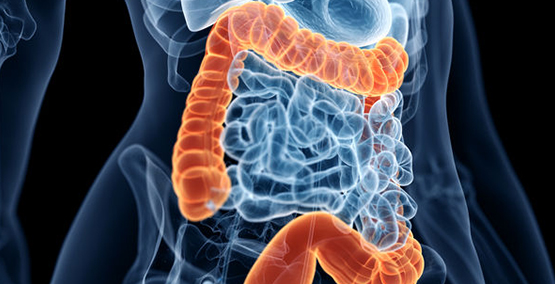
The Latest and greatest treatments for IBD: What to believe
What’s the best IBD medicine for me? Confusion on television and in your inbox....
See moresign up for our newsletter
SubscribeUlcerative colitis is one of the Inflammatory Bowel Diseases (IBD). Ulcerative colitis, also known by its initials UC, is characterized by ulcers and inflammation in the large intestine, also known as the colon.
NEED diagram
But the pattern can be quite variable in where it occurs. The rectum is always involved. Occasionally, the disease will be limited to that area and is then called ulcerative proctitis. If it extends to the S-shaped area just above that, the sigmoid region, it called proctosigmoiditis. When it includes the next area above that, the descending colon, that sits on the left side, it is referred to as left-sided colitis. It can also include the top part of the large intestine, and it is then sometimes referred to as extensive colitis. Involvement of the entire large colon is known as pancolitis.
| Area involved | Term | Frequency in Adults | Frequency in Children |
| Rectum | Proctitis | 30% | Together 5-15% |
| Rectum and just above | Proctosigmoiditis | Together 40% | Together 5-15% |
| L colon | Left-sided colitis | Together 40% | 10-35% |
| Entire colon | Pancolitis | 30% | 65-90% |
The Symptoms And Consequences Often Parallel the Location
In general, the more of the large intestine that's involved, the worse the disease is, the more symptoms the patient is going to have and the greater the risk of cancer. Because children tend to have pancolitis and extensive colitis more often than adults probably then explains why they tend to have a more severe course.
Ulcerative Colitis in the Small Intestine
Ulcerative colitis can extend into the lower end of small intestine (the terminal ileum) as well. When it does, this is referred to as backwash ileitis. When the ileum is involved, this sometimes can make the diagnosis more difficult, because the pattern (the symptoms, location and severity) can resemble Crohn's disease, and sometimes, it becomes temporarily classified as IBD-Unclassified or as Indeteterminate Colitis, which doesn't usually change treatment.
We've even reported that, using a pill camera on patients with UC, other parts of the small intestine can look like they have surface resembling what we typically see in the small intestine. Some would call this Crohn's disease, since UC supposedly is localized in the large intestine, but we've elected to place it in the category of indeterminate colitis.

Ulcerative Colitis And Other Tissues
Patients with ulcerative colitis (and Crohn's disease) can have other problems develop in association with their bowel disease. These extra-intestinal manifestations can include the joints, the skin, the liver, and other tissues. Sometimes, they can even occur before intestinal symptoms develop.
A Cure and Treatment For Ulcerative Colitis
At the present time, there is no cure for ulcerative colitis, other than to remove the large intestine. While that sometimes becomes necessary, most doctors and patient-families would prefer to use their diet and / or one (or more) of the many medicines available to control their symptoms and to help heal their intestine.
This article, as well as all others, was reviewed and edited by a member of our Medical Advisory Board.
Subscribe Be the first to know